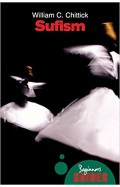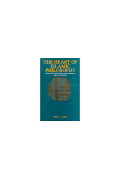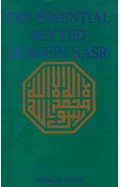The Elixir of the Gnostics
By: William C. Chittick
-
Rs 675.00
- Rs 900.00
- 25%
You save Rs 225.00.
Due to constant currency fluctuation, prices are subject to change with or without notice.
THE ELIXIR OF THE GNOSTICS –
(Iksīr al-‘Ārifīn by Mulla Sadrā)
(Iksir al-An:fin by Mulla Sadra) William C. Chittick Mulla Sadra combines and synthesizes the various currents of Islamic thought, especially philosophy, theoretical Sufism, and Kalam and is, therefore, able to integrate the traditional religious rhetoric into his perspective in a manner that has no real parallels. The secondary literature on Sadra has made a good deal of progress in laying down the philosophical background and historical context of his works, but such studies can never take the place of translations, and, up midi now, only two of his works have been published in English translation. Originally composed in Arabic, Tksir al-Arz:fin, or Elixir of the Gnostics, may well be unique among Mulla Sadra’s writings. The underlying theme of Elixir is a teaching that stands at the heart of Mulla Sadra’s writings and those of many other Muslim thinkers: the importance of self-knowledge in each person’s journey of “Origin and Return.” Each soul originates with God, and one’s journey is completed only when the soul has returned to Him. Self knowledge is the means by which the soul, having been created in the divine image, must realize its full and final potential; and philosophy, in Sadra’s view, is the most direct path to that end. In Sadra’s way of looking at things, everything in existence is traveling on a path that ends up at its rightful place with God. The movement of all creation on the path of Origin and Return, or from First to Last, is a great manifestation of God’s wisdom and compassion, culminating in a state of permanent happiness for all creatures.
THE ELIXIR OF THE GNOSTICS –
(Iksīr al-‘Ārifīn by Mulla Sadrā)
(Iksir al-An:fin by Mulla Sadra) William C. Chittick Mulla Sadra combines and synthesizes the various currents of Islamic thought, especially philosophy, theoretical Sufism, and Kalam and is, therefore, able to integrate the traditional religious rhetoric into his perspective in a manner that has no real parallels. The secondary literature on Sadra has made a good deal of progress in laying down the philosophical background and historical context of his works, but such studies can never take the place of translations, and, up midi now, only two of his works have been published in English translation. Originally composed in Arabic, Tksir al-Arz:fin, or Elixir of the Gnostics, may well be unique among Mulla Sadra’s writings. The underlying theme of Elixir is a teaching that stands at the heart of Mulla Sadra’s writings and those of many other Muslim thinkers: the importance of self-knowledge in each person’s journey of “Origin and Return.” Each soul originates with God, and one’s journey is completed only when the soul has returned to Him. Self knowledge is the means by which the soul, having been created in the divine image, must realize its full and final potential; and philosophy, in Sadra’s view, is the most direct path to that end. In Sadra’s way of looking at things, everything in existence is traveling on a path that ends up at its rightful place with God. The movement of all creation on the path of Origin and Return, or from First to Last, is a great manifestation of God’s wisdom and compassion, culminating in a state of permanent happiness for all creatures.
The Sufi Path of Love: The Spiritual Teachings of Rumi (Suny Series in Islamic Spirituality) (Suny Series, Islamic Spirituality)
By: William C. Chittick
Rs 1,125.00 Rs 1,250.00 Ex Tax :Rs 1,125.00
Science Of The Cosmos Science Of The Soul
By: William C. Chittick
Rs 630.00 Rs 700.00 Ex Tax :Rs 630.00
Imaginal Worlds - Ibn Al-ʻArabī and the Problem of Religious Diversity
By: William C. Chittick
Rs 720.00 Rs 800.00 Ex Tax :Rs 720.00
Zubin Mehta: A Musical Journey (An Authorized Biography)
By: VOID - Bakhtiar K. Dadabhoy
Rs 472.50 Rs 1,050.00 Ex Tax :Rs 472.50
The Origins of Political Order From Prehuman Times to the French RevolutioN
By: Francis Fukuyama
Rs 3,505.50 Rs 3,895.00 Ex Tax :Rs 3,505.50
No similar books from this author available at the moment.
No recently viewed books available at the moment.
Zubin Mehta: A Musical Journey (An Authorized Biography)
By: VOID - Bakhtiar K. Dadabhoy
Rs 472.50 Rs 1,050.00 Ex Tax :Rs 472.50
The Sufi Path of Love: The Spiritual Teachings of Rumi (Suny Series in Islamic Spirituality) (Suny Series, Islamic Spirituality)
By: William C. Chittick
Rs 1,125.00 Rs 1,250.00 Ex Tax :Rs 1,125.00
Science Of The Cosmos Science Of The Soul
By: William C. Chittick
Rs 630.00 Rs 700.00 Ex Tax :Rs 630.00
Imaginal Worlds - Ibn Al-ʻArabī and the Problem of Religious Diversity
By: William C. Chittick
Rs 720.00 Rs 800.00 Ex Tax :Rs 720.00






















-120x187.jpg?q6)











-120x187.jpg?q6)

